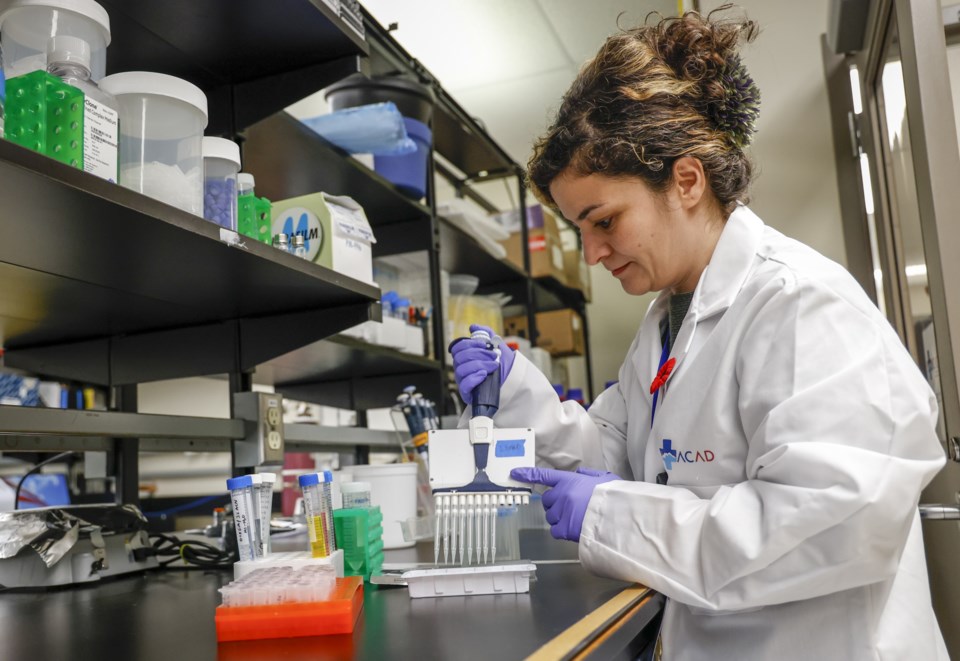CALGARY — The effect of the COVID-19 pandemic helped start a new diagnostic testing and research facility at the University of Calgary focused on infections.
The Alberta Centre for Advanced Diagnostics aims to become a new hub in the global push to advance diagnostic technology.
Dr. Bill Ghali, vice-president of research at the University of Calgary, said the facility contains laboratory spaces, advanced instrumentation and a network of partnerships needed to turn concepts from prototypes into real-world tools.
"After the last three years launching an infectious diseases diagnostic program feels particularly meaningful. Diagnostics have been a critical tool for health-care providers and citizens as we navigate life with COVID-19," Ghali said.
"These tools play a role in more than 70 per cent of treatment decisions. Infectious disease diagnostics are a $21-billion market, growing seven per cent annually."
Ghali said many front-line diagnostics rely on outdated technology and the demand is high.
He said ACAD will support a wide range of diagnostic projects and has been specifically designed around the unique challenges in detecting infections — one of the fastest-growing segments of the diagnostic market and a critical element of national pandemic readiness.
Alberta-based companies that have ideas for diagnostic tools can bring them to the centre, which will provide them with advisers to help develop them.
"We can actually give interactive feedback through the prototyping phases so that products when they finally come out are ready to be implemented in the health-care system," said Dr. Ian Lewis, the director of ACAD.
The University of Calgary, PrairiesCan, Genome Canada and the Canada Foundation for Innovation have spent $14.6 million to establish the new research centre. Additional funding and support comes from Alberta Innovates, Thermo Fisher Scientific and Alberta Precision Laboratories.
Lewis said there are two dedicated project spaces. After the prototypes are developed, they can help partner with the Biosafety Level 2 clinical labs to get preclinical evaluation of their prototypes and then move them toward commercialization.
"You can actually work with dangerous pathogens right here in the space, in the same environment where you can build real-world diagnostic tools and prototypes," said Lewis.
He said the arrival of pandemic put plans for the diagnostic research centre into high gear.
"COVID was a boon for us. We had built this program and then COVID came along and as it turns out people were interested in developing COVID-related diagnostics," he said.
"It's fuelled a real innovation in the infectious disease diagnostic space and we're really proud to be a part of that innovation."
This report by The Canadian Press was first published Nov. 7, 2022.
Bill Graveland, The Canadian Press
